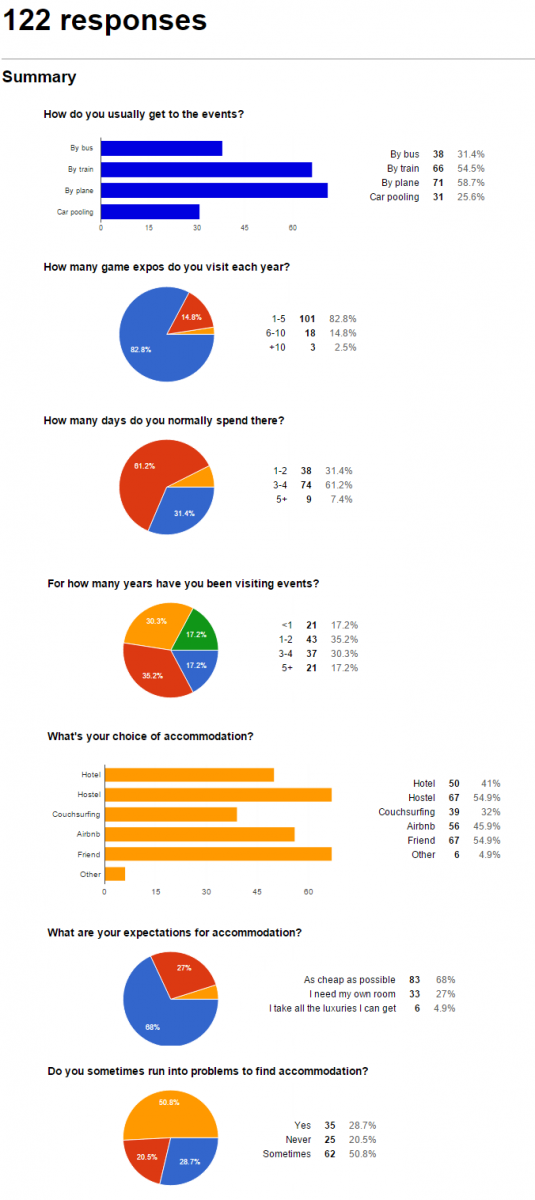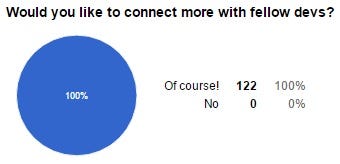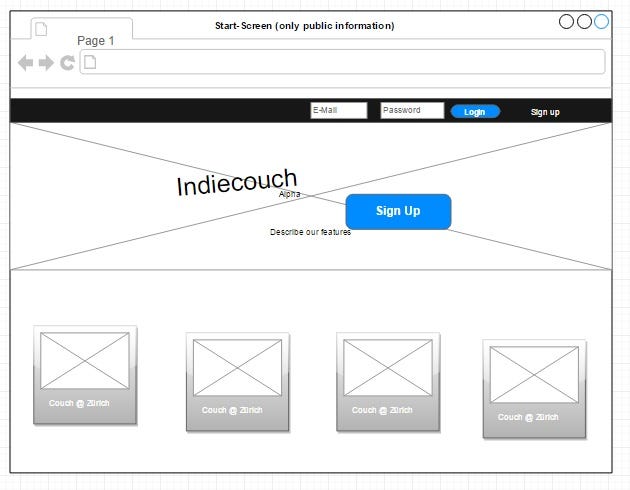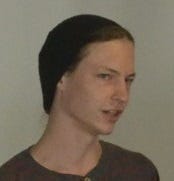The journey of indiecouch: From an idea to a kickstarter
Every once in a while an idea pops up in our head, an idea that will not let us go for days or even weeks. We don't ask ourselves if we can or should do it. No, we already know that we will do it no matter what and the only question to figure out is: How?

It's passion that motivates us and drives us to go unreasonable lenghts to achieve our vision. For most of you this is probably the reason why you started developing your first game. The feeling to create something that will be out there forever, a little piece of us deep inside the cyberspace shining like a tiny star.
One of those ideas was indiecouch: Take the core concept of couchsurfing and tailor it for indie developers. For those who don't know couchsurfing: It's a website where people offer their couch for free to strangers to stay a night or two. The problem with couchsurfing nowadays is, that is has gotten to big. I'ts incredibly difficult to find a place to stay in a major city and it's also not in the original spirit to use your host only to save money, be away the whole day at a convention and just crash for the night.
Announcing the project
I came up with the idea on August 4th 2015 and immediately knew that my limited programming skills will not be sufficent. I pitched the idea to a dear friend and great software engineer to see if he would be interested in joining the project. Luckily, he was but coming from outside the games industry he first wanted to see that there is a general need for it. In business terms: Market evaluation.
We put together a survey and roughly three weeks later I pitched the idea to a friend from inside the industry with experience in marketing/development and expertise in web design. She was immediately on board, desgined a logo and under her watchful eye I put together a simple landing page with a link to the survey and the possibility to sign up for a newsletter. Two days later, on August 23rd, it went online:
We posted the news on our private twitter and facebook accounts because we hadn't set up any official accounts yet. We also shared it on Reddit, relevant facebook groups and TIG. Nothing fancy, but the response was already overwhelming. I put out one tweet and three days later it still got shared. Needless to say, after those results my friend was convinced:

Let's take a look at the responses for the survey:

Interesting for the start of the project were only the three last questions. The first ones we implemented for a future use. But it showed clearly some of the points we wanted to cover:
- 68% just want a cheap place to crash
- Most people have trouble finding suitable accommodation
- They like to stay with friends
But what really took us by surprise was the result for this question:

There are already a lot of options and websites out there to connect with fellow devs but apparently that is not enough. This basically set the undertone for further marketing to not only advertise the free accommodation possibility but also the chance to connect more with other developers.
Creating the Alpha
Only four days after our announcement we got contacted by the Ludicious Zürich Game Festival. They asked us if they could use indiecouch as some sort of matchmaking for their upcoming festival in January 2016 and if we could create something within 2-4 weeks. It could be very simple and they would pay us for it. After some negotiating we agreed to it with a set deadline for November 1st.
We had roughly two months time but at this point the whole thing only existed in my head. We didn't expect at all to get so much positive feedback and were surprised by the huge demand for a platform like this. Those two months were pretty work intensive. We wanted to show that we are capable of realizing the idea but also had to strip it down to the bare minimum to meet our deadline. So we created the minimum viable product and applied some make-up in form of css to it. Because of that our very first mockup looks pretty much like the finished website:
A friend of ours, a professional web designer, was helping us with the project during this time. She did a great job but I had almost no creative control over the process. Due to the lack of time I had to trust her where she was going with it. It turned out fine and it's incredible what came to life in only two months but it was far from being the optimal workflow.
Thanks to some late night shifts we hit our deadline just in time. There were still a lot of bugs because we didn't had time to test everything properly but it was up and running and people could sign up for it. We sent out a newsletter to our now 181 subscribers and announced it on social media.
Once again, the response was overwhelming:

What we didn't expect: Developers from all over the world started signing up. We intended the platform to be for this one specific festival, that's why there is still the feature where you can set the date for the availability of your couch. One very important thing we learnt from that: If people like it they will use it, wether they are the intended audience or not.
Concepting phase
The next month we spent fixing bugs and it was around this time, when the idea of doing a Kickstarter campaign first came up. We were aware of the huge amount of work that lies behind such a campaign and since we did not know at this point for what we would even use the money, the idea was put aside.
On December 1st 2015 we sent out a Newsletter looking for a second programmer to help us but it didn't return any positive response.
In January 2016 I finished the concept for the website, which consisted of over 100 mockups. It's the first time everyone realised how big the project really is. We decided to cut all the features that are not neccessary in the beginning for our transition into beta but there was still a huge chunk left. In regards that the money earned from Ludicious will not last forever, we sent out another Newsletter asking the users to help us covering the running costs via Patreon.
The decision to run a Kickstarter
Asking strangers on the internet for money is not an easy task. Our Patreon did not take of and one of the three supporters is actually a team member who wanted to contribute something to the running costs. Now seeing the full scope of the project, it was time to think about that Kickstarter idea again.
It was clear that we need at least one more programmer to work partially on the project. We also want the project to be financially sustainable through cooperations with corresponding events. Where money flows there should be a business, so we need to build a startup. We also need to protect ourselves so we need to make sure legally everything is fine. On the top of our heads there were a couple of points where we will need money for.
In mid February, we decided to run a Kickstarter campaign, starting on March 1st. Looking back it's unbelievable how fast time has passed. We're already working on it for seven months!
Right now we are in the middle of our campaign and a postmortem about how it went will follow. Three parts, covering the preparation, the first 48h and the first half of the campaign are already online written in German on indiegames.ch.
Read more about:
BlogsAbout the Author(s)
You May Also Like













